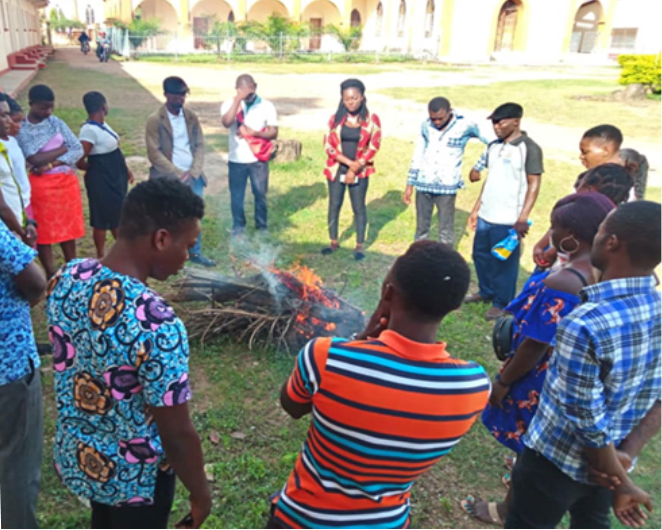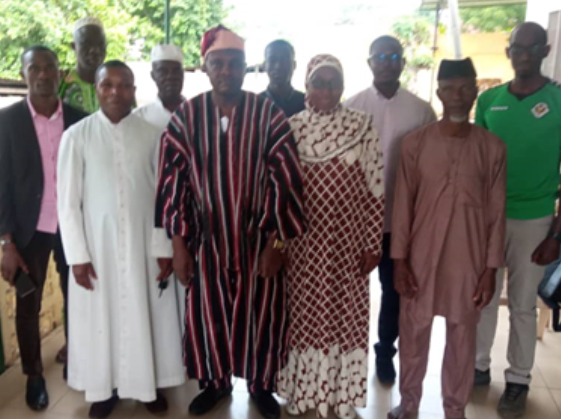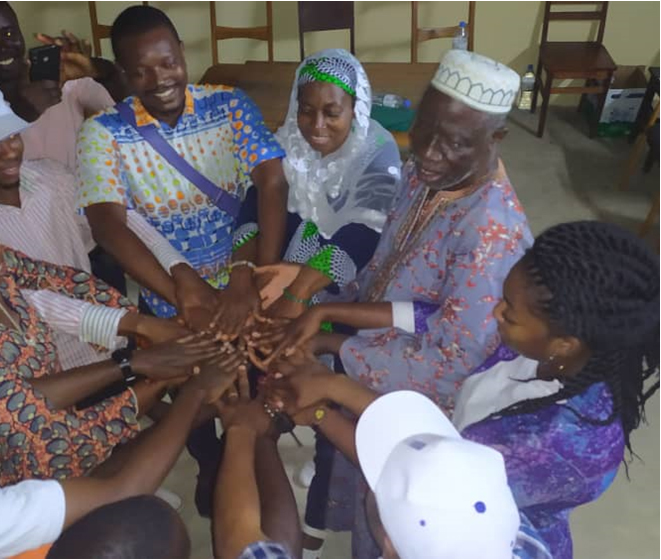 Community Dialogue Platform for Social Cohesion and Local Development project
Establishment of inclusive dialogue frameworks in Togolese municipalities for the prevention and peaceful resolution of conflict
Community Dialogue Platform for Social Cohesion and Local Development project
Establishment of inclusive dialogue frameworks in Togolese municipalities for the prevention and peaceful resolution of conflict

Challenges
Despite various dialogue processes geared towards national reconciliation, Togo’s stability remains fragile due to the country’s vulnerability to political conflict, social cohesion issues and the weak resilience of institutions and communities to conflicts. The socio-political crisis is slowing the country’s development momentum and hampering its achievement of the Sustainable Development Goals (SDGs). Also, in Togo, young people (aged 15-24 years) account for 38 percent of the total population , which represents a potential factor for socio-political instability and violent internal conflict, especially when associated with poverty and unemployment. Therefore, it is essential to prevent Togolese youth from being marginalized and to strengthen their identity as citizens to enhance their potential capacities for peace and socioeconomic recovery.
Towards a Solution
Aware of the current socioeconomic and political challenges, in its National Development Plan (2018-2022) the Government of Togo committed to strengthening social cohesion, improving governance and accelerating the decentralization process. The government also understood that at the municipality level, social cohesion as an intrinsic element of development processes must be embraced or communities would run the risk of conflict situations, compromising achievement of the prosperity expected from the National Development Plan and the SDGs.
Thus, the project Community Dialogue Platform for Social Cohesion and Local Development is being implemented by Togo’s Ministry of Human Rights, Training, Citizenship and Relations with the Institutions of the Republic and supported by the United Nations Development Programme (UNDP), Togo’s Ministry of Territorial Administration and Decentralization, Togo’s Ministry of Social Action, Women’s Empowerment and Literacy, Togo’s Ministry of Grassroots Development, Crafts and Youth, and the non-governmental organizations WANEP Togo, Catholic Relief Services and MINODOO.
This project seeks to achieve SDG 16 (peace, justice and strong institutions) as an essential basis for the accomplishment of all the other SDGs. The project targets 20 municipalities for the establishment of inclusive dialogue frameworks on social cohesion and local development. The project is based on the experience of the Local Peace Committees established in all the country’s prefectures. It intends to strengthen the technical capacities of the municipalities to adopt inclusive approaches to intra- and inter-community dialogue for the prevention and peaceful resolution of conflicts. The project includes the creation of peace, social cohesion and leadership clubs in schools.
The approach followed combines an appraisal method called “4Ds” (Discover, Dream, Design and Delivery) with a peacebuilding method called “3Bs” (Binding, Bonding and Bridging). The 4Ds help people face their own fears and mistrust and to envision a future free from conflict, poverty and exclusion and lay foundations for social engagement. The 3Bs encompass: 1) binding activities to create an additional space for individual reflection and individual healing; 2) relationship building activities within identity groups; and 3) bridging activities that develop trust between and among identity groups. The combination of the 4Ds and 3Bs has shown to be an effective way for groups, organizations and communities that are undergoing a crisis or facing challenges to examine differences, find common ground, collaborate for mutual benefit and envision a harmonious future.
Three peace clubs have been created in three pilot municipalities, allowing 13,620 students (51 percent of whom are girls) to be sensitized on living together, the prevention of violent extremism and the peaceful management of land and leading to the definition by the youth of a vision for their municipality. More than 400 local actors (42 percent of whom are women) have been trained in social cohesion, including mayors, opinion leaders and young people. This made it possible to conduct various connector initiatives, such as the creation of youth groups carrying out public health actions, sports awareness-raising activities in public spaces and the drafting of petitions to local authorities on specific social and environmental issues.
Electronic collaborative platforms will support the dialogue frameworks put in place, enhancing communication between local authorities, local administrations and other main players, in particular women and young people. At the same time, these platforms should help improve the visibility, knowledge bases, experiences and lessons learned from the project. South-South project exchanges are planned with other countries known to have rebuilding experiences involving living together between and within communities, such as Benin, Ghana, Rwanda and Senegal.
Contact Information
Countries involved
Supported by
Implementing Entities
Project Status
Project Period
Primary SDG
Primary SDG Targets
Secondary SDGs
Secondary SDG Targets
Similar Solutions
| NAME OF SOLUTION | Countries | SDG | Project Status | |
|---|---|---|---|---|
Accelerating the Implementation of African Union Treaties in São Tomé and Príncipe South-South learning from the Beninese judicial system’s experience in the application of human rights treaties to its national law |
Benin, Ghana, Rwanda, Senegal, Togo | 05 - Gender Equality | Completed | View Details |
Accelerating the Transformational Shift to a Low-Carbon Economy in Mauritius Towards supplying 35 percent of the country’s energy needs with renewables by 2025 |
Benin, Ghana, Rwanda, Senegal, Togo | 05 - Gender Equality 09 - Industry, Innovation and Infrastructure 13 - Climate Action | Ongoing | View Details |
Accelerator Labs Network Following collective intelligence methods to address emerging sustainability challenges and the growing demand for local solutions |
Benin, Ghana, Rwanda, Senegal, Togo | 08 - Decent Work and Economic Growth 13 - Climate Action | Ongoing | View Details |
Accessible Digital Textbooks Promoting inclusive education through Accessible Digital Textbooks |
Benin, Ghana, Rwanda, Senegal, Togo | 10 - Reduced Inequalities | Completed | View Details |
Access to Justice through e-Services and Dematerialized Case Management Scaling up connectivity and unlocking the digital potential of judicial institutions to enhance access to justice for all |
Benin, Ghana, Rwanda, Senegal, Togo | 05 - Gender Equality | Completed | View Details |


